Citizen-centered public services within walking distance
December 11, 2023
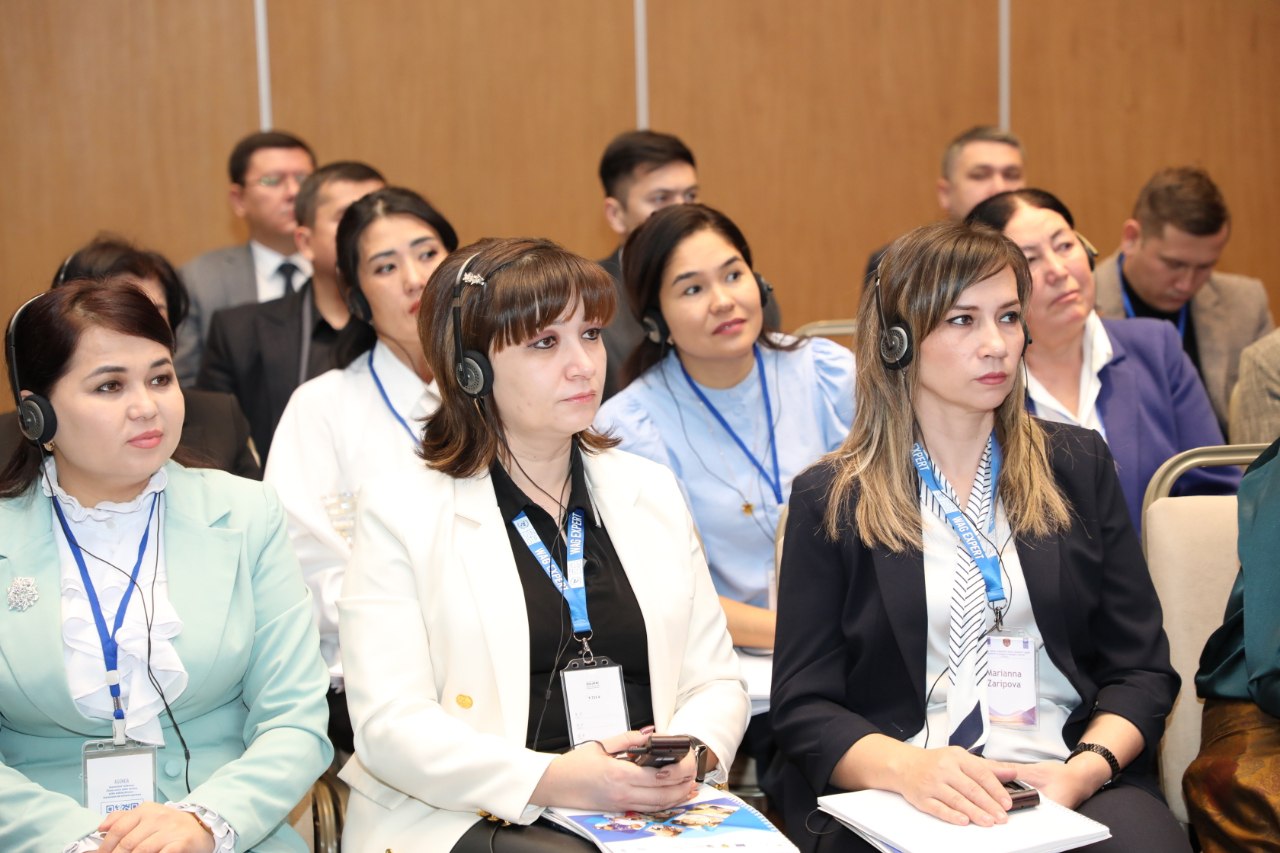
Tashkent, 11 December 2023 The Hyatt Regency Hotel hosts the International Conference "Citizen-Centred Public Services within Walking Distance – International and National Experience", organized by the Joint Project of the Ministry of Justice of the Republic of Uzbekistan, the European Union and UNDP in Uzbekistan "Improved Public Service Delivery and Enhanced Governance in Rural Uzbekistan" in cooperation with the Good Governance Programme The German Society for International Cooperation in Uzbekistan (GIZ), the Senate of the Oliy Majlis of the Republic of Uzbekistan, the NGO "Center for Support of Civil Initiatives" (Uzbekistan) and the NGO Center Marta (Latvia).
The purpose of the International Conference is to bring together experts, leaders, activists, policymakers, and stakeholders to create a platform for dialogue, cooperation and the development of proposals aimed at further improving the quality and accessibility of public services for all categories, especially for vulnerable groups such as women, the elderly and people with disabilities.
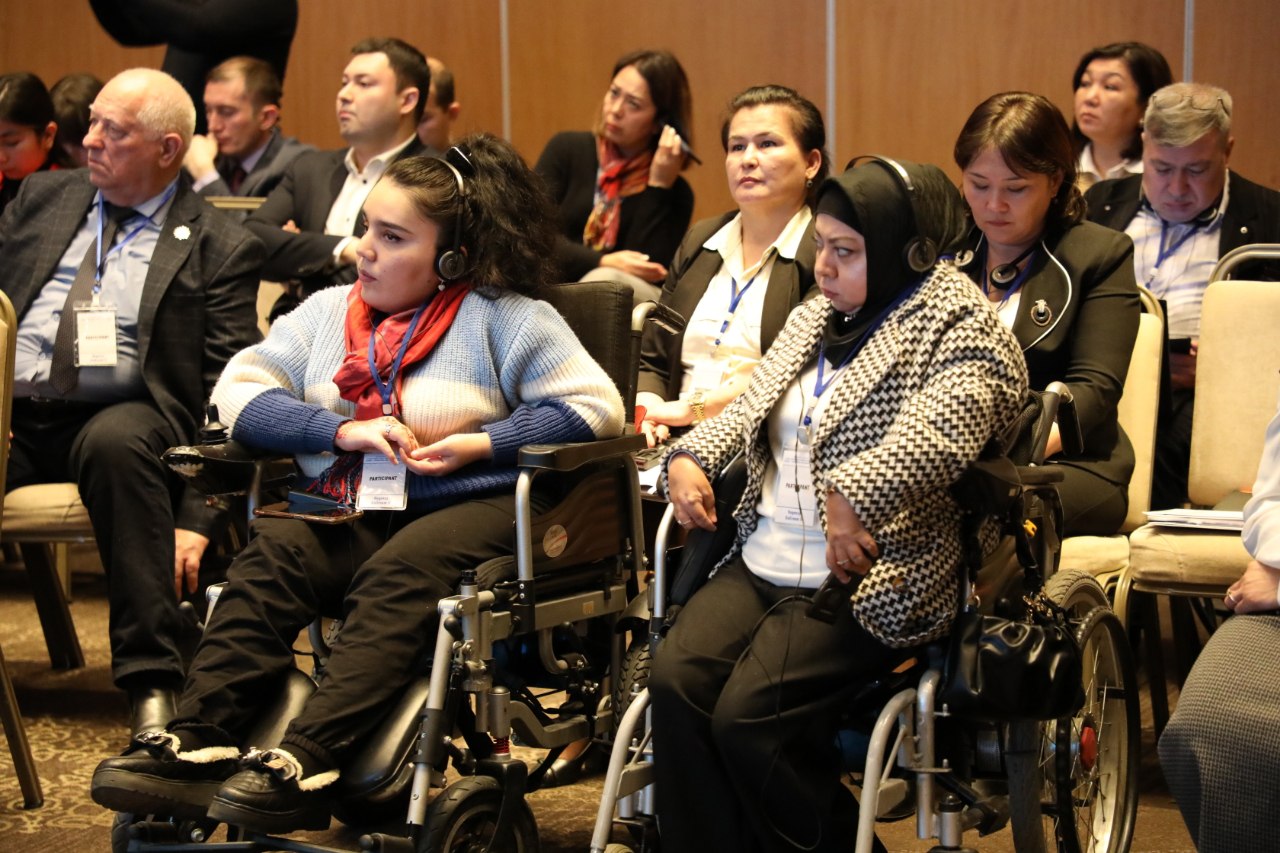
The reforms carried out by the Government of the Republic of Uzbekistan in recent years to ensure sustainable economic development and social justice in society include the creation of favorable conditions for the population's access to public services. Digital technologies make it possible not only to reduce the impact of the "human factor" on the quality of public administration, but also to focus on the individual needs of the population when using public services.
Malika Kadirkhanova, Chairperson of the Senate Committee on Women and Gender Equality, Charlotte Adrian, Ambassador of the European Union to the Republic of Uzbekistan, Ram Iyer, UNDP Resident Representative a.i. in Uzbekistan, Alice Wolken, Deputy Head of Mission of the German Embassy and Reinis Trokša, Ambassador Extraordinary and Plenipotentiary of the Republic of Latvia to the Republic of Uzbekistan, made opening remarks at the opening of the conference.
The adoption of digital technologies in the public administration of the country is happening much faster than the readiness of individuals and legal entities to receive the necessary services through digital skills, and among them, the most vulnerable to these changes remain such groups of the population as the elderly, population of rural areas, especially women and people with disabilities.
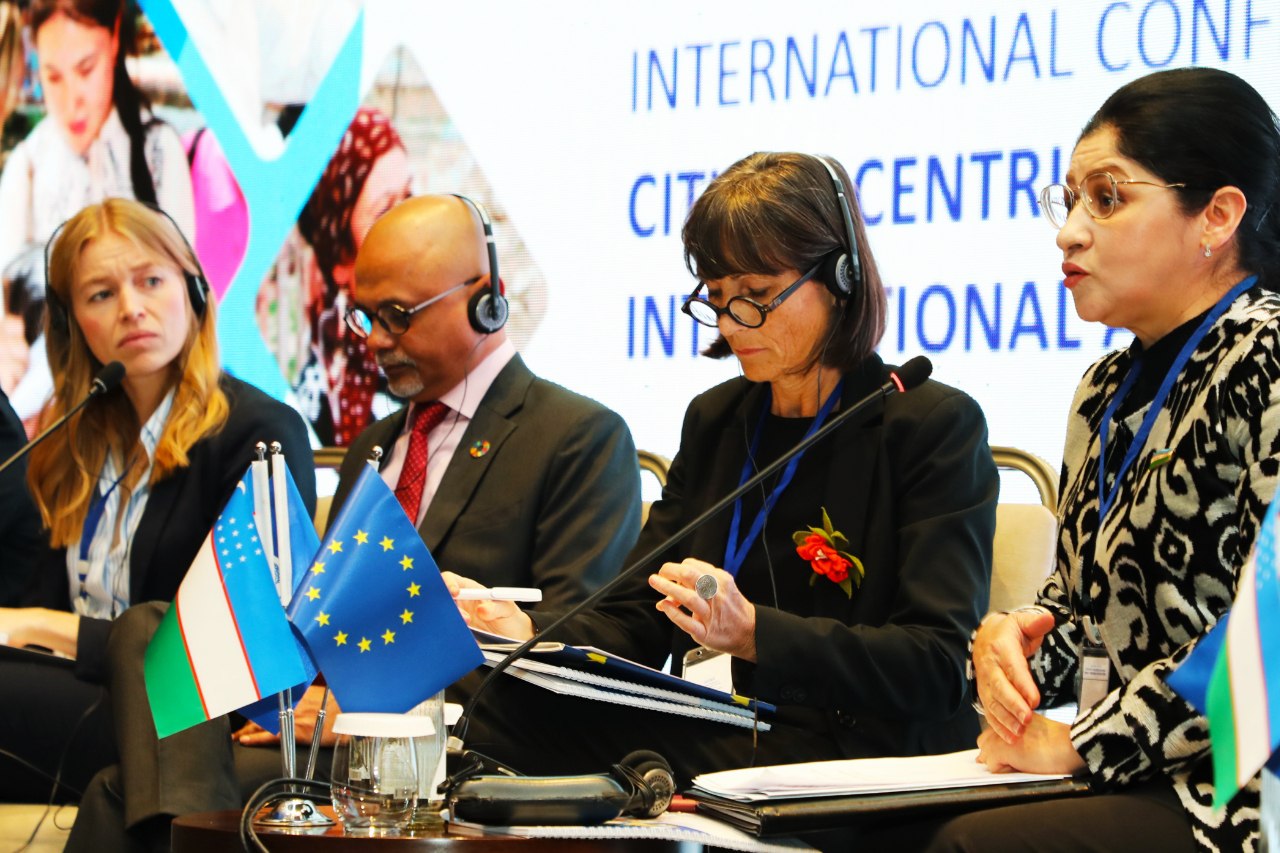
Dildora Amirkulova, National Consultant of the joint project, presented the results of the analytical report "Public Service Centers and Women's Advisory Groups: Overview of Activities, Lessons Learned and Recommendations" within the framework of the conference. In October 2012, the Joint Project of the Ministry of Justice of the Republic of Uzbekistan, the European Union and UNDP in Uzbekistan "Improved the Public Service Delivery and Enhanced Governance in Rural Uzbekistan" established Women's Advisory Groups (WAG) in seven regions of Uzbekistan to increase access to public services for vulnerable groups in rural areas, such as women, youth, children, the elderly, and people with disabilities.
The main activities of the WAGs are as follows:
Counseling women, members of low-income families, young people, the elderly, people with disabilities and others on how to receive public services;
Promoting the improvement of the population's skills to receive public services online;
Organization of seminars, round tables and master classes to popularize the online use of public services, explain the essence of public services, the features of benefits provided to vulnerable categories of the population, and other issues;
Involvement of volunteers in the activities of the CGU, their training;
Providing assistance to the population in legal, psychological, social and other issues, by involving specialists available in the region.
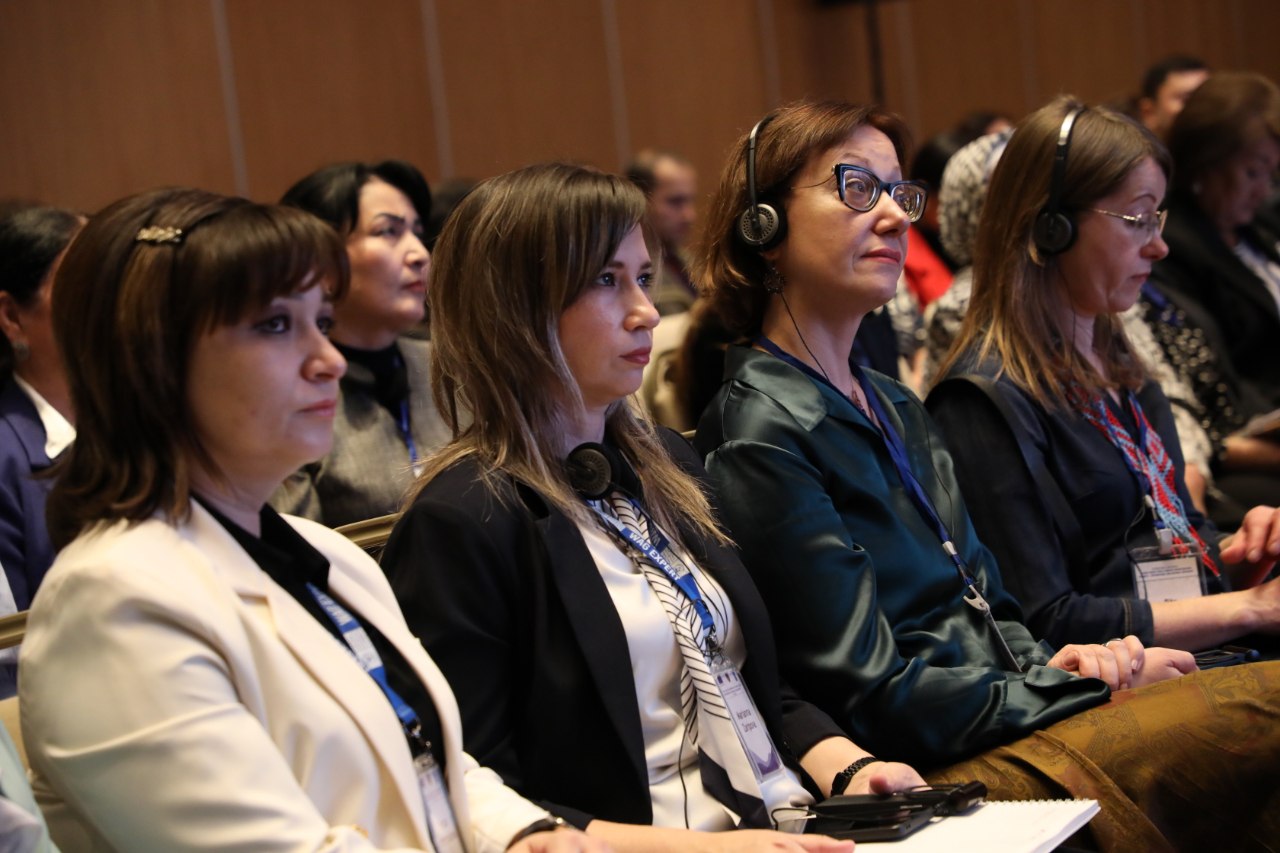
From October 2021 to November 2023, more than 25,000 citizens, including 13,143 women, 3,156 men, 6,086 young people, 981 elderly people, 773people with disabilities, turned to WAG specialists. They were provided with detailed information on public services, obtaining public services online, as well as consultations on legal, psychological, business and social issues by referring applicants to relevant experts from government institutions and NGOs.
Particular attention is paid to the most vulnerable groups of the population, including people with disabilities, women, low-income families, youth, the elderly, and others. In total, since October 2021, more than 770 people with disabilities have received advice and support on the provision of public services.
Despite significant progress, vulnerable groups, especially women, continue to face challenges in accessing public services and various areas of life, including education, health, employment, and leadership. Experts from the Women's Advisory Group are actively working to address these issues. This conference serves as a follow-up to these efforts, providing an opportunity to assess the current status, share best practices and strategize for the future.
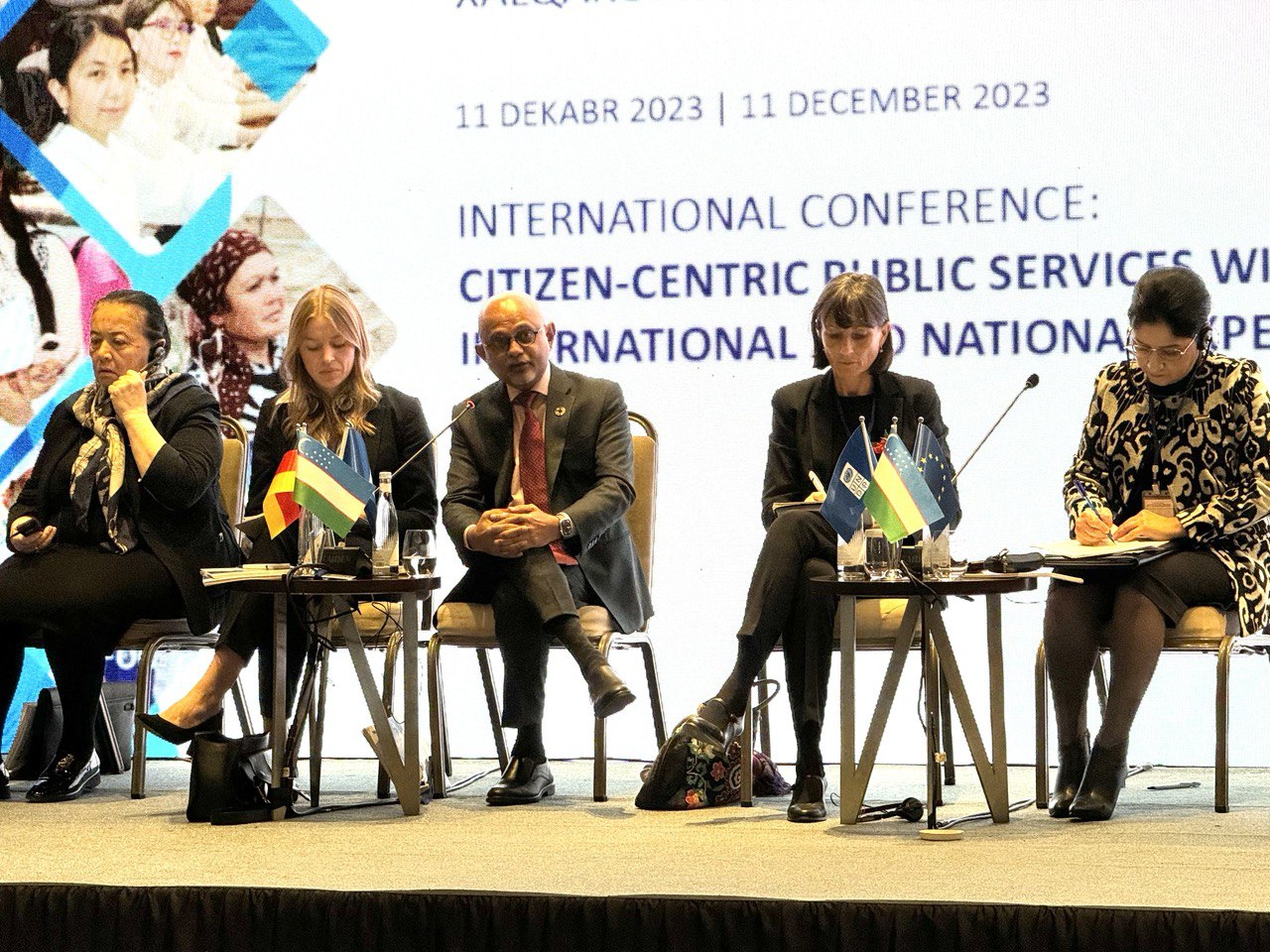
Several topics and issues were considered at the conference in the format of plenary sessions, panel discussions and presentations:
Thriving Together: Best Practices for Sustainable Growth/Development of Women's Advisory Groups. During this session, conference participants will discuss various strategies and best practices that contribute to the sustainable development and growth of Women's Advisory Groups.
Digital literacy: A key factor in the accessibility of public services for all. The purpose of this session is to provide practical ideas and practical strategies for improving the digital literacy of the rural population, especially vulnerable groups, as well as to discuss the issues of inclusiveness of information systems and various portals used by the population to interact with government organizations.
Empowering: Improving access to public services for people with disabilities. In this session, participants will discuss issues such as identifying and removing barriers to accessibility. This includes both physical barriers, such as inaccessible buildings and transportation systems, and behavioral barriers, such as stigma and discrimination. Also, the issues of providing people with disabilities with knowledge, the skills, and resources they need to protect themselves and their needs.
As a result of the conference, it is planned to develop strategies and action plans to address the sustainability challenges of the Women's Advisory Groups, as well as to establish cooperation and partnerships between various stakeholders.

 Locations
Locations


